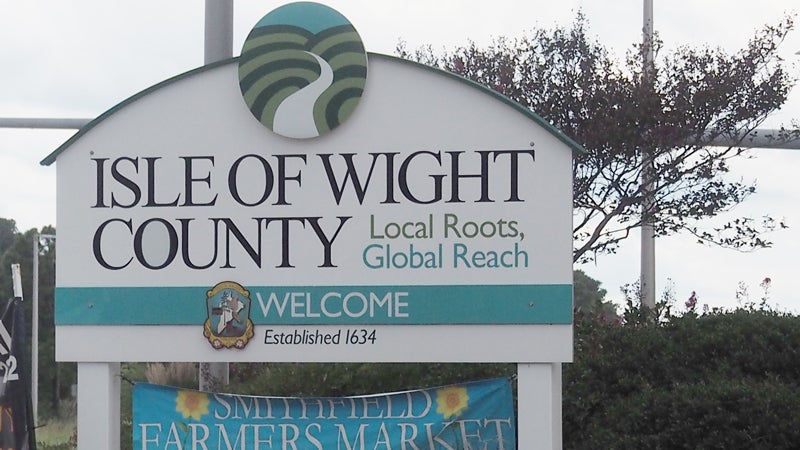Funding vote on 2% school employee raises delayed
Published 4:16 pm Friday, December 1, 2023

- FIle photo
Isle of Wight County supervisors postponed funding 2% raises for teachers and other school employees that would take effect Jan. 1 after balking at the unexpected nearly half-million-dollar cost.
Virginia’s General Assembly in a special September session passed legislation allocating $54.5 million in state funds to give public school employees a 2% raise on top of the 5% raises that took effect in July in accordance with the state’s 2022-24 biennium budget, for a total 7% increase this school year.
The School Board voted on Nov. 8 to accept its $312,221 share of the state funding but acknowledged there isn’t any extra money presently in its 2023-24 budget to cover the $485,616 Isle of Wight County Schools Chief Financial Officer Larisa Harris has calculated as the school division’s local match. Board of Supervisors Chairman William McCarty and Supervisor Dick Grice, on Nov. 16, named themselves, School Board Chairman John Collick and School Board Vice Chairman Jason Maresh to an unofficial committee tasked with finding a source of funding after criticizing Collick and Maresh for having taken unilateral action.
“Y’all just did it; we didn’t collaborate and figure out how it was going to get paid for before we said ‘yes,’” Board of Supervisors Vice Chairman Joel Acree told Maresh.
A copy of the state certification report provided to The Smithfield Times on Dec. 4 shows Superintendent Theo Cramer certified to the state on Oct. 27 that IWCS would accept the state funds ahead of an Oct. 31 deadline to do so. Harris, at the School Board’s Nov. 8 meeting, said IWCS has the option of retracting the certification should the School Board or supervisors decline the money. Maresh, in response to Acree’s criticism, reiterated Harris’s Nov. 8 assertion that the supervisors, not the School Board, are the school division’s local funding authority and by law must approve any additions to the division’s budget.
“That’s just the way it is,” Maresh said, though he agreed that “communication can be improved.”
Grice was likewise critical of providing raises to school administrators, some of whom already earn six-figure salaries.
“I’m tired of hearing ‘pay raises for teachers’ when it’s not; it’s for all school (employees), including administration and executives,” Grice said.
Unlike the mandatory 5% raises, the 2% is optional. IWCS Superintendent Theo Cramer, however, told the School Board on Nov. 8 that had the school division refused to accept the state money, or should the supervisors refuse to fund the local match, Isle of Wight would be “one of the very few” divisions in the state to do so, putting the division at a “significant disadvantage” compared to larger, higher-paying school divisions with which Isle of Wight competes for teachers.
Collick told The Smithfield Times by email on Dec. 1 that the two supervisors and School Board members planned to meet Dec. 7 at 2:30 p.m. at the division’s central office behind Westside Elementary to further discuss the matter.
Why is Isle of Wight’s share higher than the state’s?
The state allocates funding to public school divisions based on a formula known as the “composite index,” which calculates a division’s ability to pay the costs associated with meeting state-mandated minimum staffing levels based on enrollment, known as standards of quality, or “SOQ,” positions. According to the Virginia Department of Education’s website, the formula assigns a 50% weight to the value of a locality’s real estate, a 40% weight to a locality’s adjusted gross income and the remaining 10% to taxable retail sales.
According to Maresh, 562 of Isle of Wight County Schools’ 783 contracted employees, or just under 72%, are SOQ, leaving Isle of Wight on the hook for funding 100% of the cost associated with the salary and benefits for the remaining 221. According to the VDOE, most school divisions exceed the SOQ staffing minimums.
The SOQ positions aren’t fully funded by the state either. According to County Administrator Randy Keaton, even limiting the 2% raises to SOQ positions would cost $510,165. The dollar amount allocated per SOQ teacher may be lower than what Isle of Wight actually pays to remain competitive with neighboring school divisions, Keaton said.
According to Keaton, roughly $198,000 of the $485,616 county match would cover the gap in state funding to provide 2% raises to all SOQ positions based on Isle of Wight’s current pay scale. The remaining roughly $287,000 would cover the 2% raises for non-SOQ positions.
Collick contends Virginia law doesn’t allow IWCS to exclude employees earning above a specific dollar amount from receiving state money allocated for raises.
“We have a deputy superintendent who is also SOQ,” Collick said.
Editor’s note: This story was updated on Dec. 4 at 11:12 a.m. with details from the Oct. 27 certification Isle of Wight County Schools provided to the state concerning the 2% raises.





